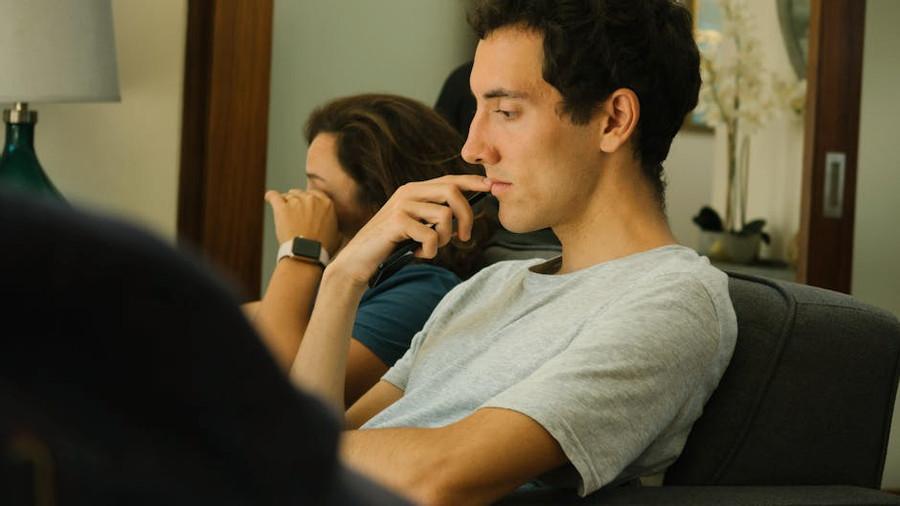People Underestimate How Much They Will Change – Effectiviology
Curated from: effectiviology.com
Ideas, facts & insights covering these topics:
10 ideas
·1.91K reads
9
2
Explore the World's Best Ideas
Join today and uncover 100+ curated journeys from 50+ topics. Unlock access to our mobile app with extensive features.
Projection Bias
Projection bias is a cognitive bias that causes people to overestimate the degree to which their future attributes (e.g., tastes and beliefs) will resemble their current ones. Essentially, this bias leads people to engage in flawed self-forecasting, by projecting their current attributes onto their future selves, and thus underestimating how much their attributes will likely change over time.
Projection bias can strongly influence people’s thoughts, statements, and actions in various domains, so it’s important to understand it.
46
624 reads
The Hungry Shopper
An example of the projection bias is that a person who is grocery shopping while hungry will likely buy more food than they really need, because they assume that they will keep being as hungry in the future, even after they’ve eaten.
41
310 reads
How Projection Bias Influences Our Behaviour
- It can cause people who are making summer vacation plans during the winter to pick overly warm destinations, because they overestimate how much they will want to be somewhere warm during the summer, due to the current winter conditions.
- It can cause diners to order too much food at the beginning of their meal, because they overestimate how hungry they will be as the meal progresses, due to their current hunger.
- It can cause people to start engaging in an addictive habit, such as smoking cigarettes, because they underestimate how addictive it will be, due to their current lack of addiction.
42
202 reads
How Entities Can Take Undue Advantage Of Projection Bias In People
Some entities may also take advantage of people’s projection bias intentionally, as in the case of companies that do so to influence people’s shopping patterns.
Example: Companies may encourage overconsumption by encouraging people to purchase large quantities of a certain product in advance (like the food at an all-you-can-eat buffet) before those people realize that they don’t need so much of the product or don’t value the product as much as they initially thought.
41
175 reads
The Psychology and Causes of Projection Bias
The projection bias means that even though people generally understand the direction in which their attributes will change over time, they systematically underestimate the magnitude of this change, so their prediction lies between their current attributes and their actual future attributes.
This happens because people give too much weight to the anchor of their current attributes, and fail to properly take into account factors that could cause their attributes to change, such as maturation, social influence, change in circumstances, adaptation to changes, and general mood fluctuations.
44
139 reads
Factors That Influence Attributes
Factors that change people’s attributes over time can be categorized based on whether they are:
- Personal (or dispositional), as in the case of maturation or general mood fluctuation.
- Environmental (or situational), as in the case of influence from peers or influence from a certain physical location.
These factors can also be categorized based on whether they are short-term or long-term, based on the period of time over which they influence a person.
For example, social influence from a salesperson is likely to be short-term, whereas social influence from a parent is likely to be long-term.
40
106 reads
Failure to Learn from Mispredictions
People often fail to learn from past mispredictions of their future attributions, and therefore continue to repeatedly display the same type of projection bias over time. This can happen due to various reasons, such as:
- A person’s desire to feel that they understand themself well can lead them to engage in self-enhancement, by forgetting or misremembering their past mispredictions.
- A person’s focus on confirming their current predictions, rather than on assessing them properly, which can lead them to ignore evidence that contradicts those predictions.
41
116 reads
How to Deal With Projection Bias
- Understand what this bias is and what causes it.
- Understand when and how this bias can affect people in general.
- Be aware of common projection traps, such as underestimating the influence of visceral factors, overestimating the likelihood of following up on future plans, and oversensitivity to your current state when making long-term decisions.
- Identify specific situations where this bias can play a key role, and plan how you will deal with it.
- Use general debiasing techniques, such as slowing down your reasoning process and making it explicit.
41
93 reads
The Origin And History Of Projection Bias
The projection bias is attributed to a 2003 paper titled “Projection bias in predicting future utility”, by researchers George Loewenstein, Ted O’Donoghue, and Matthew Rabin (published in the Quarterly Journal of Economics, Volume 118, Issue 4, pages 1209–1248).
The associated study was also published as a working paper in 2000, and mentioned in other publications around that time period. Furthermore, evidence of this phenomenon has also been presented in other papers published around that time and earlier.
40
72 reads
Other Types Of Projection Bias
Projection Bias is sometimes used to refer to people's tendency to project their beliefs, values, characteristics, and behaviours unto others, and to consequently overestimate the degree to which these things are shared with others, a phenomenon that’s sometimes referred to as social projection or the false-consensus effect.
The type of projection bias that is outlined in this article can be considered a specific case of this, where people project current attributes onto their future selves.
42
80 reads
IDEAS CURATED BY
Joshua Roberts's ideas are part of this journey:
Learn more about psychology with this collection
Strategies for building self-confidence
Techniques for embracing your strengths and accomplishments
Tips for seeking support and feedback
Related collections
Similar ideas
5 ideas
3 ideas
5 ideas
Read & Learn
20x Faster
without
deepstash
with
deepstash
with
deepstash
Personalized microlearning
—
100+ Learning Journeys
—
Access to 200,000+ ideas
—
Access to the mobile app
—
Unlimited idea saving
—
—
Unlimited history
—
—
Unlimited listening to ideas
—
—
Downloading & offline access
—
—
Supercharge your mind with one idea per day
Enter your email and spend 1 minute every day to learn something new.
I agree to receive email updates









